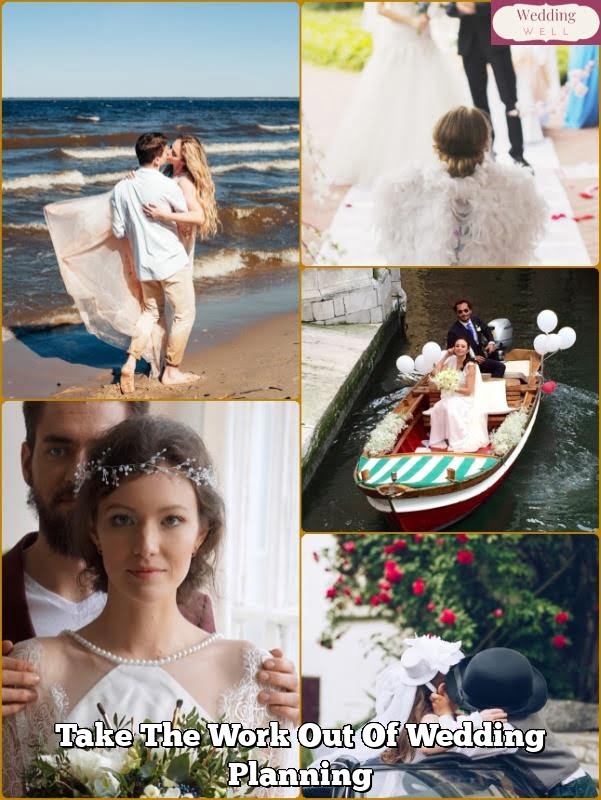Weddings are a significant milestone in many people’s lives, symbolizing the commitment and love shared between two individuals. But how do weddings work, from the initial planning stages to saying “I do” and beyond? In this article, we will explore the intricate process of organizing and executing a wedding, covering everything from obtaining marriage licenses to selecting the perfect venue, choosing the wedding party, and navigating the legalities and traditions involved.
A wedding is not just a simple event, but a celebration that holds deep cultural, religious, and personal significance for those involved. It is a public declaration of love and commitment, surrounded by rituals that have been passed down through generations. From engagement to exchanging vows, there are multiple steps involved in making this day one to remember.
Planning a wedding involves careful consideration and decision-making, transforming a vision into reality. The elements of a wedding coalesce into an unforgettable experience designed to honor tradition while reflecting the unique personality of the couple. Join us as we delve deeper into understanding the inner workings of weddings – from concept to execution – and debunking any misconceptions along the way.
Planning the Big Day
Creating the Vision: Theme, Colors, and Style
Planning a wedding begins with creating a vision for the big day. Couples must decide on a theme, colors, and overall style that will set the tone for the event. Whether it’s a rustic outdoor affair or a glamorous black-tie soirée, the vision will guide all other decisions in the planning process.
Setting a Budget: Allocating Funds and Prioritizing Expenses
One of the most crucial aspects of planning a wedding is setting a budget. Couples must determine how much they are willing to spend and allocate funds accordingly. With various expenses such as venue, catering, attire, and entertainment, prioritizing expenses is essential to ensure that the vision can become a reality within budget constraints.
Hiring Vendors: Finding the Right Professionals to Bring the Vision to Life
From photographers and florists to caterers and musicians, hiring the right vendors is key to bringing the wedding vision to life. Couples must research and interview potential vendors to ensure that they align with their aesthetic and can execute their vision seamlessly. Making informed decisions when selecting vendors is crucial in ensuring that every aspect of the wedding contributes to making it a memorable and special day.
How Weddings Work
from inception through execution.
The Legalities
When it comes to planning a wedding, one of the most important aspects to consider is the legalities involved in obtaining marriage licenses and permits. In order for a marriage to be legally recognized, couples must adhere to certain legal requirements set forth by their local government.
This includes obtaining a marriage license from the county clerk’s office or equivalent government agency. The specific requirements for obtaining a marriage license vary by location, so it is important for couples to research the necessary documentation and procedures well in advance.
In addition to obtaining a marriage license, couples may also need to secure permits for their wedding ceremony and reception venues. Some locations require special event permits for large gatherings, especially if they are held in public spaces or outdoor areas.
It is crucial for couples to check with their venue managers or local authorities to ensure that they are in compliance with any permit requirements. Failure to obtain the required permits could result in legal issues and disrupt the wedding plans.
Understanding the legalities of obtaining marriage licenses and permits is essential for ensuring that a wedding ceremony is legally recognized and free from any potential disruptions. By thoroughly researching the specific requirements of their location and venue, couples can navigate this aspect of wedding planning with ease, allowing them to focus on creating a memorable and joyous celebration of love.
Choosing the Perfect Venue
When it comes to planning a wedding, one of the most important decisions is choosing the perfect venue. Whether it’s an indoor or outdoor setting, traditional or modern, the venue sets the tone for the entire event. Here are some factors to consider when making this crucial choice:
- Location: Consider the geographical location of the venue and how accessible it is for your guests. Is it convenient for travel? Is there ample parking or transportation options available?
- Capacity: Determine how many guests you plan to invite and ensure that the venue can accommodate that number comfortably. You don’t want a space that feels too cramped or too empty.
- Style: Think about what kind of atmosphere you envision for your wedding. Do you want a formal ballroom setting, a rustic outdoor barn, or a modern urban loft? The style of the venue should reflect your personal tastes and preferences.
With these considerations in mind, you can begin to narrow down your options and find the perfect venue for your special day. Remember to visit potential venues in person, ask plenty of questions, and envision how they will look and feel on your wedding day.
Ultimately, choosing the right venue is crucial in creating the perfect backdrop for your wedding day. The right setting can enhance the overall experience for both you and your guests, making it a memorable occasion that will be cherished forever. So take your time, do thorough research, and trust your instincts when making this important decision on how do weddings work.
The Wedding Party
The selection of bridesmaids, groomsmen, and other participants is a crucial aspect of wedding planning. These individuals play a significant role in the wedding festivities and serve as a support system for the bride and groom. The process of choosing the wedding party involves careful consideration and thoughtfulness to ensure that the selected individuals are not only significant to the couple but also have the willingness and ability to fulfill their roles effectively.
The Role of Bridesmaids and Groomsmen
Bridesmaids and groomsmen serve as the bride and groom’s closest friends or family members who stand by their side on their special day. They assist with various tasks leading up to the wedding, such as organizing bridal showers, bachelor parties, and providing moral support to the couple. During the ceremony, they play pivotal roles by escorting the bride and groom down the aisle, holding bouquets, and overseeing various aspects of the event.
Selecting Other Participants
In addition to bridesmaids and groomsmen, couples may choose to include other participants in their wedding party, such as flower girls, ring bearers, ushers, or even pets. These roles can hold personal significance for the couple and add a touch of charm and uniqueness to the celebration. The selection process for these additional participants requires thoughtful consideration of each individual’s relationship with the couple and their capability to fulfill their designated roles.
Considerations in Selecting Wedding Party Members
When choosing bridesmaids, groomsmen, or other participants for their wedding party, couples should consider several factors. These may include individuals’ availability on the wedding day, their willingness to commit time and effort into fulfilling their roles, as well as any potential conflicts or dynamics among selected participants that could impact the overall celebration. Open communication with potential members about expectations and responsibilities will be essential in ensuring a harmonious wedding party experience.
The Ceremony
When it comes to the ceremony, there are many traditions, vows, and symbolic rituals that couples can incorporate to make their wedding day truly special and meaningful. From unity ceremonies to cultural rituals, there are countless ways to personalize this important part of the celebration. Here are some popular traditions and rituals often included in wedding ceremonies:
- Unity Candle: This tradition involves the bride and groom each lighting a candle and then using those candles to light a larger, unity candle. This symbolizes the joining of two individuals into one marriage.
- Handfasting: This ancient Celtic ritual involves tying the hands of the couple together with a cord or ribbon to symbolize their connection and commitment to one another.
- Exchange of Vows: Traditional vows are a popular choice, but many couples also choose to write their own personalized vows. This is a touching way for them to express their love and promises to each other.
- Ring Exchange: The exchange of rings is a universal symbol of marriage and commitment. It signifies the couple’s eternal love and devotion to each other.
The ceremony is the heart of any wedding day, as it marks the official beginning of a couple’s new life together. As such, it’s essential for couples to carefully consider how they want their ceremony to unfold. By incorporating meaningful traditions, vows, and symbolic rituals, they can create a ceremony that reflects their unique love story and sets the tone for their happily ever after.
The Reception
Planning the reception for a wedding is an exciting and important part of the overall event. It’s where the newlyweds, their family, and guests come together to celebrate and enjoy the festivities. One of the key aspects to consider when planning the reception is the food and drinks that will be served.
Couples have various options such as buffet style, plated dinners, or even food stations offering a variety of cuisines. Providing delicious food and a selection of drinks is essential in ensuring that guests have an enjoyable experience.
Entertainment is another crucial component of a wedding reception. This can include hiring a DJ or live band to provide music for dancing, as well as additional forms of entertainment such as photo booths or games for guests to enjoy. Additionally, couples may choose to incorporate special dances or other performances into their reception program.
Decor plays a significant role in setting the tone and atmosphere for the reception. From table centerpieces to lighting and floral arrangements, couples have numerous choices in creating a cohesive and visually appealing ambiance for their celebration.
As you can see, there are many details involved in planning a wedding reception. It’s essential to consider not only the logistical aspects but also the overall experience that the couple wants to create for themselves and their guests. By carefully considering each element – from food and drinks to entertainment and decor – couples can ensure that their reception is memorable and enjoyable for everyone involved.
| Aspect | Considerations |
|---|---|
| Food & Drinks | Buffet vs plated dinner vs food stations; dietary restrictions; open bar vs cash bar |
| Entertainment | DJ vs live band; additional entertainment options (photo booth, games); special performances or dances |
| Decor | Table centerpieces, lighting, floral arrangements; overall theme and atmosphere |
After the Wedding
After the whirlwind of the wedding day, there are still a few important tasks to take care of. One major change that often comes after marriage is the decision whether or not to change one’s last name.
For those who choose to do so, the process can be a bit overwhelming. Each state in the US has different guidelines for changing one’s name after marriage, so it’s important to research and understand the specific requirements for your location.
In addition to changing one’s name, sending out thank you notes to guests is an essential part of post-wedding etiquette. It’s important to show appreciation for those who attended the ceremony and reception, as well as those who sent gifts but were unable to attend. Taking the time to personalize each note and express genuine gratitude is key in making guests feel valued and appreciated.
Another aspect of post-wedding life that newlyweds must navigate is merging finances. This often includes combining bank accounts, creating joint financial goals, and updating legal documents such as wills and life insurance policies. Having open and honest conversations about financial expectations and responsibilities from the beginning can help lay a strong foundation for a healthy financial future together.
| Task | Description |
|---|---|
| Changing Last Name | Research state guidelines for changing last name after marriage |
| Sending Thank You Notes | Personalize each note and express genuine gratitude |
| Merging Finances | Combine bank accounts, define financial goals, update legal documents |
Conclusion
In conclusion, weddings are complex events that involve careful planning, legal considerations, and a myriad of personal choices. From obtaining marriage licenses to selecting the perfect venue and planning the reception details, there are many factors that go into making the big day a success. In addition to these practical considerations, weddings also carry great emotional significance as they mark the beginning of a new chapter in the lives of the couple.
The process of planning a wedding offers couples an opportunity to envision and create a day that reflects their unique love story. It is a time for them to consider what traditions, rituals, and symbols hold meaning for them and how they want to incorporate them into their ceremony and celebration. The wedding party also plays an important role in supporting the couple and adding personal touches to the festivities, making it a truly memorable occasion for all involved.
As the wedding comes to an end, couples embark on the journey of merging their lives together. This includes navigating legal paperwork, changing last names if desired, and expressing gratitude through thank you notes.
While weddings mark one significant moment in time, they also symbolize the beginning of happily ever after as two individuals come together to build a life as partners. So when we ask “how do weddings work,” we must remember that they work by bringing people together with love and unity at its core.
Frequently Asked Questions
What Is the Process of Wedding?
The process of a wedding typically involves several key steps, starting with the engagement and leading up to the big day. This often includes setting a date, choosing a venue, sending out invitations, selecting a wedding party, and planning the ceremony and reception details.
In What Order Does a Wedding Go?
A wedding generally follows a specific order of events, beginning with the processional where the bridal party enters and culminating in the recessional when everyone exits. In between, there are rituals like exchanging vows, giving rings, performing unity ceremonies, and hearing readings or music.
How Is a Wedding Ceremony Done?
A wedding ceremony is usually led by an officiant who sets the tone for the proceedings. There may be opening words or prayers, followed by the exchange of vows and rings. Couples may also opt to include special elements such as lighting candles or pouring sand to symbolize their union before concluding with a declaration of marriage and a kiss.

Welcome to my blog about home and family. This blog is a place where I will share my thoughts, ideas, and experiences related to these important topics. I am a stay-at-home mom with two young children. I hope you enjoy reading it! and may find some helpful tips and ideas that will make your home and family life even better!





